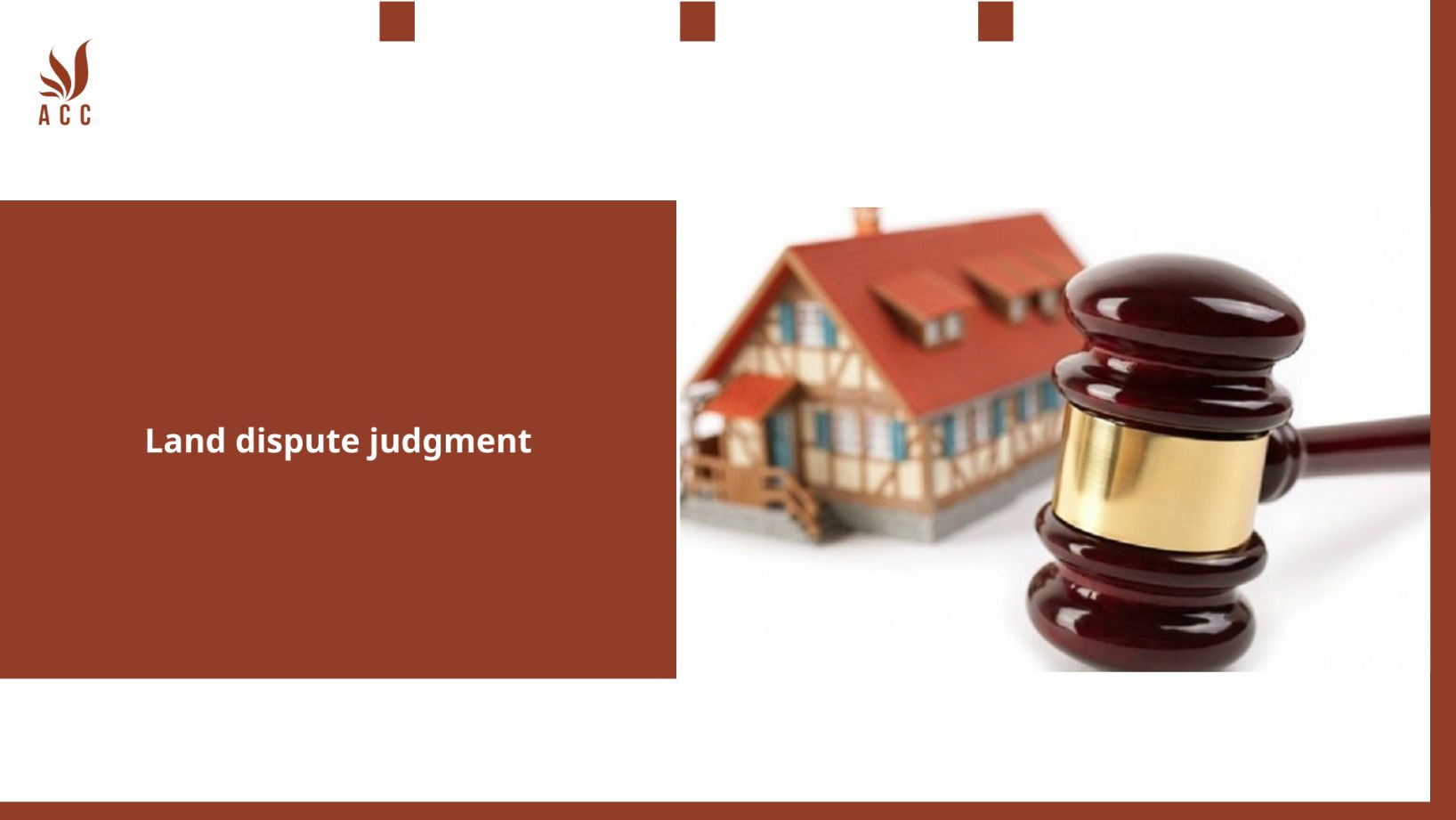A "land dispute judgment" refers to a legal decision or ruling made by a court of law regarding a dispute or conflict related to land ownership, land boundaries, property rights, or other land-related matters. Land disputes can arise for various reasons, including disagreements over property boundaries, land titles, land use, encroachments, and more. When parties involved in a land dispute are unable to reach a resolution through negotiation or mediation, they may turn to the legal system for a judgment.
Here are the key steps involved in a typical land dispute judgment process:

1. Filing a Lawsuit:
The party wishing to seek a resolution to a land dispute may file a lawsuit in the appropriate court. The lawsuit outlines the nature of the dispute, the parties involved, and the desired outcome.
2. Pre-trial Proceedings:
Before the trial begins, there may be pre-trial procedures, including gathering evidence, witness depositions, and the exchange of information between the parties.
3. Trial:
The dispute is brought before a judge or jury in a court of law. Both parties present their arguments, evidence, and witnesses.
4. Legal Representation:
Parties involved in the dispute often have legal representation, such as lawyers who specialize in real estate or property law.
5. Judgment:
After considering all the evidence and arguments, the judge or jury issues a judgment. This judgment may include decisions regarding property ownership, boundaries, compensation, or other remedies.
6. Appeals:
Either party can appeal the judgment if they believe the decision was incorrect or unfair. The appeals process involves higher courts reviewing the case.
7. Enforcement:
Once a judgment is final and binding, the court will enforce it. This may involve actions such as ordering property transfers, evictions, or payment of compensation.
It's important to note that the specific legal procedures and the duration of the judgment process can vary depending on the jurisdiction, the complexity of the case, and the nature of the land dispute. Land dispute judgments are essential for providing clarity and resolution in situations where land-related conflicts cannot be resolved through negotiation or alternative dispute resolution methods.
8. When using ACC Law Firm's land-related services, entrepreneurs will receive
When using ACC Law Firm's land-related services, entrepreneurs will receive expert advice and assistance in navigating various legal aspects of land ownership and transactions. This includes guidance in property acquisitions, leases, zoning regulations, land use planning, and any other land-related legal matters. ACC Law Firm's team of experienced attorneys will provide personalized support to entrepreneurs, ensuring compliance with applicable laws and regulations, protecting property rights, and optimizing the value of their land investments.
9. Q&A
Question: What is the role of a land dispute judgment in resolving conflicts?
Answer: A land dispute judgment is a legal decision made by a court or a competent authority to settle disputes related to land ownership, boundaries, or use. Its role is to provide a final and legally binding resolution to the dispute, determining the rights and obligations of the parties involved.
Question: What factors do courts consider when making a land dispute judgment?
Answer: Courts consider various factors when making a land dispute judgment, including evidence presented by the parties, relevant land laws and regulations, property records, expert testimony, and applicable legal precedents. The goal is to make a fair and equitable decision based on the facts of the case and the law.
Question: What happens after a land dispute judgment is issued?
Answer: After a land dispute judgment is issued, the parties involved are legally obligated to comply with the decision. This may involve transferring ownership, paying compensation, adjusting property boundaries, or taking other actions specified in the judgment. Failure to comply may result in legal consequences.
Question: Is it possible to appeal a land dispute judgment?
Answer: Yes, it is often possible to appeal a land dispute judgment. If one or both parties believe that the judgment is incorrect or unjust, they can file an appeal with a higher court. The appeals process allows for a review of the case to ensure that the judgment aligns with the law and legal procedures.
Nội dung bài viết:






Bình luận